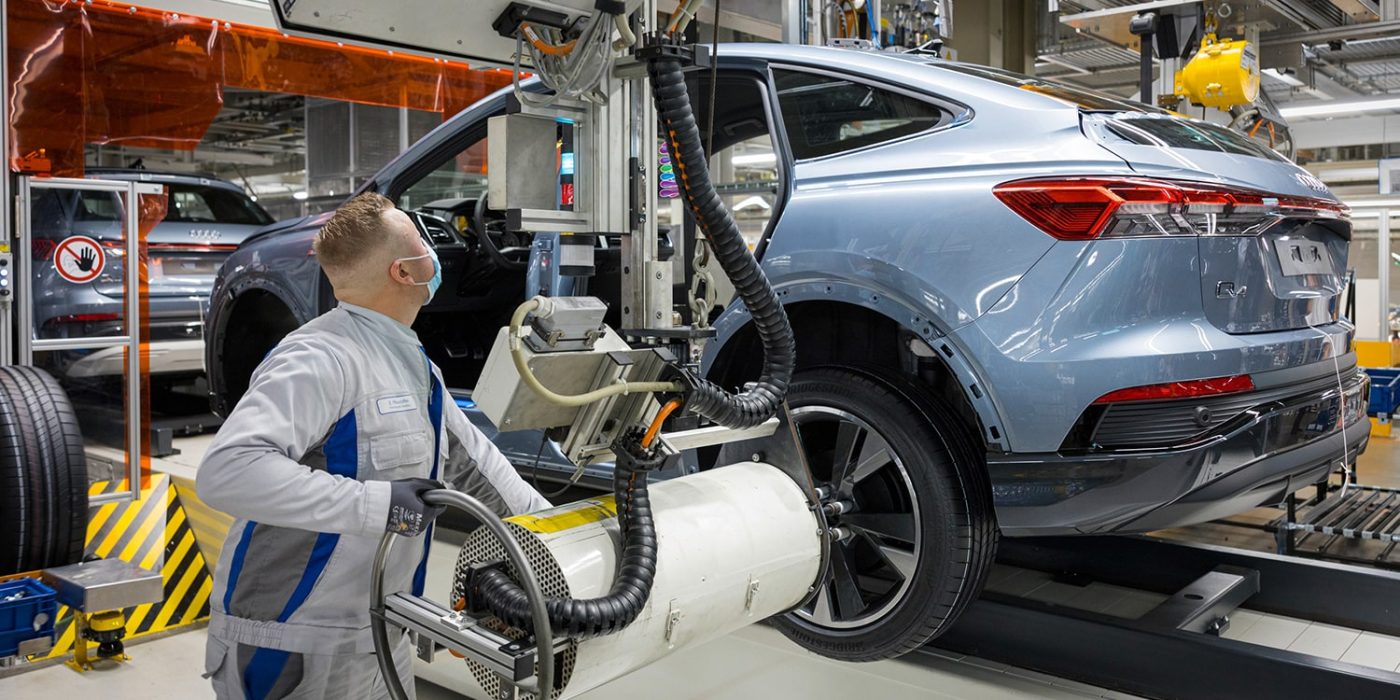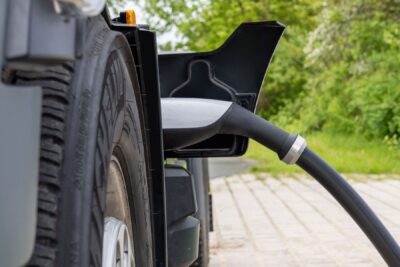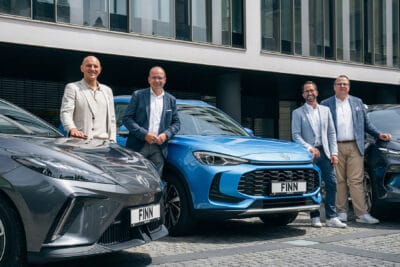VW reaches deal with unions: Zwickau to lose models, production in Dresden to end
After five days of negotiations, VW finally achieved the desired agreement before Christmas. If the wage dispute had extended over the holidays, the result could have been widespread strikes in the new year.
However, the compromise presented by Volkswagen and labour union IG Metall on Friday evening is significant: more than 35,000 jobs will be cut by 2030. When former VW Group CEO Herbert Diess suggested reducing 30,000 positions in autumn 2021, it caused a major uproar in Wolfsburg. Now, such a high number is part of a compromise—and might have been even higher without the lengthy negotiations.
4,000 positions in development to be cut
Volkswagen AG says it is positioning itself competitively for the future. With the collective agreement on the in-house wage agreement, the company is creating conditions for a €1.5 billion annual financial labour cost reduction by 2030. Short-term cost reductions, as well as agreed structural measures through capacity reductions and development cost savings, are expected to result in cost effects exceeding €4 billion annually in the medium term. Significantly for the board, this agreement will help the Volkswagen passenger car brand achieve its profitability target in the medium term.
Notably, VW intends to avoid redundancies, and current employees are guaranteed jobs until 2030. Likely, vacancies will not be filled as roles become vacant. Additional savings measures include cuts to bonuses and profit-sharing. However, the board’s demand for a 10% wage reduction has been dropped. Instead, IG Metall’s proposal for a “Future Fund,” previously rejected as “insufficient” by the board, has been adopted as part of the compromise. According to the German Handelsblatt, “a pay increase of just over five per cent—similar to agreements in the metal and electrical industries—will be paid into a fund in two stages rather than employees’ accounts.” This fund will be used, for example, to finance flexible reductions in working hours for some employees.
As for the areas where jobs will be cut, only one department has been specifically identified. VW announced that “to invest more in innovations, the Technical Development department will be reorganised. By leveraging group synergies, the competitiveness of Technical Development will be sustainably strengthened.” As part of this restructuring, approximately 4,000 jobs will be cut by 2030.
Production in Dresden to end, Osnabrück to be sold
VW has confirmed information from Der Spiegel that VW will reduce “technical capacity for building 734,000 cars per year” in its German plants. That nearly matches the capacity of the Wolfsburg main factory. To illustrate VW’s overcapacity: although Wolfsburg is designed to produce about 750,000 cars annually, only around 490,000 Volkswagen vehicles were produced there in 2023.
A number of agreed model shifts between factories were detailed in IG Metall’s statement. As leaked on Thursday, the Zwickau electric vehicle plant is also affected: the VW ID.3 and its sister model Cupra Born, which are currently built on the same line, will in future be produced in Wolfsburg. The ID.4 will be entirely relocated to Emden with a facelift (currently built at both locations), leaving Zwickau with only one production line and only the Audi Q4 e-tron model.
In Wolfsburg, two new models will be added; however, the iconic Golf (as a combustion engine) will be manufactured “at another location” in future, according to the union. The company confirms that the Puebla plant in Mexico, the frontrunner, has prevailed—starting in 2027, the Golf and Golf Variant will be built there. Meanwhile, the main plant will be prepared for the electric SSP platform—with the electric ID.Golf.
In Emden, the entire ID.4 range will be manufactured alongside the ID.7 and ID.7 Tourer. Additionally, a decision will be made in 2027 regarding the allocation of another model. In Hanover, the production of the T7 Multivan and ID. Buzz will continue—“thus, the relocation plans of the management have been thwarted,” writes IG Metall. However, “specific measures to sustainably reduce factory costs” have been agreed upon, according to the company.
ID.5 facing discontinuation?
One model that neither the union nor IG Metall has mentioned is the ID.5. It is no longer being produced in Zwickau and is not listed among the models from Emden. This SUV coupé could thus be discontinued—though this is not yet confirmed.
While Emden and Hanover are secure, two smaller locations have no future. Production in the Transparent Factory in Dresden (Gläserne Manufaktur), where the carmaker builds electric cars based on the MEB on a small scale (most recently about 6,000 ID.3s), will end in late 2025. The location will be “repurposed.” The Osnabrück plant, which would have had no model to produce from 2026 onwards, is to be sold. According to information from Handelsblatt, the former Karmann plant “could go to a defence or recycling company.” For now, production of the T-Roc Cabrio has been extended until 2027. By then, a buyer must be found—or the discussions will reignite.
Zwickau with only one model in the future
Zwickau remains operational under the terms of the compromise. However, the models that have been moved out cast doubt on its long-term prospects. With the ID.3, Born, ID.4, ID.5, and Q4 e-tron, the plant was already underutilised; the night shift was cancelled a year ago, and all temporary contracts were recently confirmed to be ending. With only one model in the future, Zwickau will likely struggle to remain profitable. In any case, the plant’s success will depend on demand for just one model range.
VW’s management had targeted up to three plants – the smaller sites in Dresden and Osnabrück were early contenders for closure. However, if three plants had been affected, a larger vehicle or components plant would also have been included. The components plants, though, remain secure. Kassel has also received further commitments for electric mobility components. In Salzgitter, the second block of the PowerCo cell factory is no longer up for discussion – a decision on when battery cells will begin production in the second block will be made no later than Planning Round 74 in 2026.
“Decisive steps for the future taken”
“After long and intense negotiations, the agreement is an important signal for the future viability of the Volkswagen brand, Volkswagen Commercial Vehicles, and the components plants,” said CEO Oliver Blume, according to the company statement. “With the achieved package of measures, the company has set decisive steps for its future in terms of costs, capacities, and structures. The board and management are participating disproportionately.”
“For the future of the Volkswagen brand, we have set ourselves three priorities: reducing overcapacity in Germany, lowering labour costs, and achieving competitive development costs,” said VW Brand Chief Thomas Schäfer. “The negotiations have led to viable results in all three areas. With the agreed measures package, we are able to largely close the gap in our performance programme.”
“No site will be closed, no one will be made redundant, and our in-house wage agreement is secured in the long term. With this threefold approach, we have fought for a rock-solid solution under the most challenging economic conditions,” said Daniela Cavallo, Chairwoman of Volkswagen AG’s Works Council. “Although there are collective concessions beyond monthly incomes, these are offset by the solidarity-driven retention of all sites with future prospects, a new job security plan until the end of 2030, and, not least, the assurance for the management that at Volkswagen, changes against the will of the workforce are doomed to fail.”
The Handelsblatt describes the deal as a “breakthrough” for Group CEO Oliver Blume, “as further steps for the critical planning round in the group can now be taken.” The current planning round was originally scheduled for November but was postponed due to the wage dispute. In these planning rounds, VW allocates investments for the next five years and determines the distribution of models across its approximately 100 factories worldwide. This year, key production commitments have already been made ahead of the planning round.
volkswagen-group.com, igmetall-nieder-sachsen-anhalt.de, handelsblatt.com, spiegel.de (all in German)





0 Comments